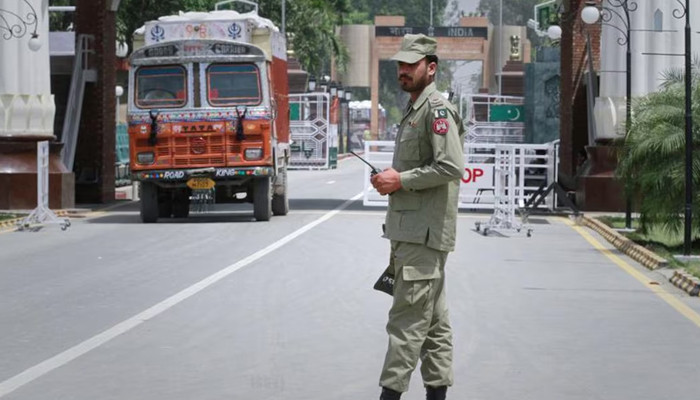UN Urges Restraint Amid Escalating Tensions Between Pakistan and India
The United Nations has called upon Pakistan and India to exercise “maximum restraint” following reciprocal diplomatic actions sparked by a deadly shooting in Indian Illegally Occupied Jammu and Kashmir (IIOJK).
Relations between the two nations have deteriorated significantly, with India accusing Pakistan of backing “cross-border terrorism” after a severe civilian attack in the contested Muslim-majority IIOJK.
UN spokesman Stephane Dujarric stated to reporters in New York that the UN is appealing to both governments to exercise extreme caution to prevent further escalation of the situation. He added that any issues between Pakistan and India can and should be resolved peacefully through constructive engagement.
India’s Response and Pakistan’s Denial
Indian Prime Minister Narendra Modi pledged to pursue those responsible for the killing of 26 individuals at the Pahalgam tourist site. Modi affirmed India’s commitment to identify, track, and punish every terrorist and their supporter, extending the pursuit globally.
Islamabad refuted any involvement, dismissing attempts to connect Pakistan to the Pahalgam attack as baseless, and promised a response to any Indian action. According to a statement from the PM’s Office, Prime Minister Shehbaz Sharif, along with top military officials, chaired a National Security Committee meeting, vowing firm reciprocal measures in all domains against any threat to Pakistan’s sovereignty and its people’s security.
Historical Context and Recent Actions
Kashmir has remained divided between India and Pakistan since 1947, with India yet to fulfill its commitment to a UN-mandated plebiscite. Since 1989, rebel groups have been active in IIOJK, advocating for independence. Recently, the Indian air force and navy conducted military exercises.
Following the attack, New Delhi suspended a water-sharing agreement, closed the primary land border crossing with Pakistan, reduced diplomatic ties, and revoked visas for Pakistani citizens.
In response, Islamabad has expelled Indian diplomats and military advisers, canceled visas for Indian nationals (excluding Sikh pilgrims), and closed its side of the main border crossing. Pakistan also cautioned that any attempt by India to halt the Indus River’s water supply would be considered an “act of war.”
Analysis and Potential Future Actions
The Pahalgam incident marks a departure from typical Kashmiri rebel attacks, which usually target Indian security forces. Experts suggest a potential military response, possibly within days or weeks. A prior suicide attack in 2019, which killed 41 Indian troops in IIOJK, led to Indian air strikes inside Pakistan, heightening tensions.
Modi, after observing a moment of silence for the victims, stated the need to eliminate the remaining presence of terrorists. The attack in Pahalgam involved gunmen emerging from forests to target tourists with automatic weapons. Indian security forces have initiated a large-scale search operation, detaining numerous individuals.
The attack has ignited outrage among Hindu nationalist groups, with reports of harassment and intimidation directed towards Kashmiri students across India.



Comments (0)
No comments yet. Be the first to comment!
Leave a Comment